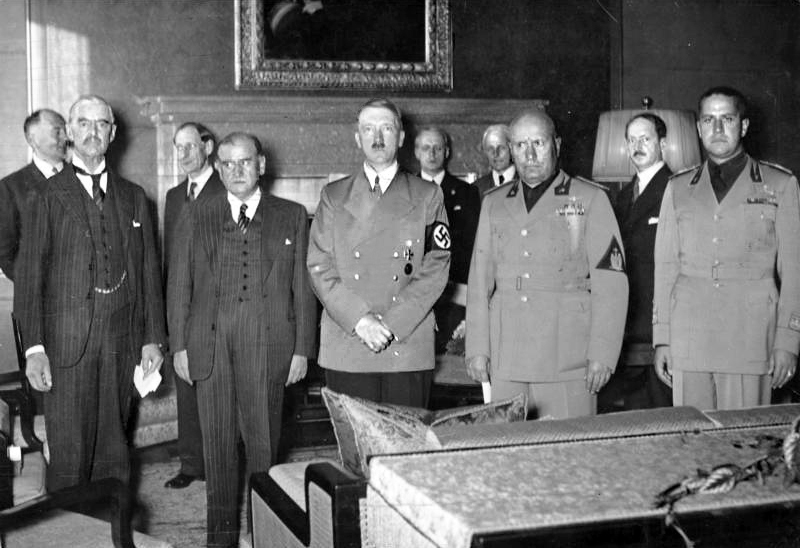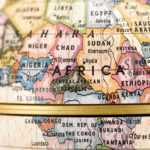

Neville Chamberlain was Prime Minister of the United Kingdom from May 1937 to May 1940. Fair or not, Chamberlain is best known for his appeasement policy toward Hitler. The Munich Agreement was signed by both Hitler and Chamberlain on Sept. 30, 1938, ceding the German-speaking Sudetenland region of Czechoslovakia to Nazi Germany in the hope that such appeasement would bring peace amid global instability.
The ink had no sooner dried on the agreement when Germany invaded Poland in the early morning hours of Sept. 1, 1939. Chamberlain, along with a whole host of others, had underestimated Hitler’s diabolical plans to dominate Europe and eventually vast parts of the globe. His goal was world domination and war his method. Conversely, Winston Churchill, who could not abide Hitler’s violent protestations against liberal democracy, nearly single-handedly, rallied a demoralized Britain and a reluctant world to make war against the enemies of freedom.
The Western powers couldn’t believe the seriousness of Hitler’s aims. Hadn’t WWI been the “war to end all wars”? Surely the lessons learned from such a bloody conflict coupled with 20th century, modern sensibilities would no longer permit such atrocities? War would be no more, right? Wrong. And Churchill saw it.
War is at our doorstep once again. On the surface it appears to be a war between one nation and another, between one religion and another. It’s that, but much more. In its deepest parts, it is a war between Western civilization and anarchy and barbarism.
It is a war between the best of the liberal traditions of the West and the barbarism of a small, but lethal group of radical terrorists whose aim it is to destroy Israel and dismantle the values of Western democracy. It is a war that transcends political parties and the liberal-conservative divide. And to our great surprise the enemy has imbedded itself on some America’s most elite college campuses, in a small but vocal caucus in the U.S House of Representatives, and in a variety of media outlets.
This is our Chamberlain-Churchill moment. Western civilization cannot underestimate the sinister motives and goals of those who would seek the deconstruction of the Western, democratic tradition, with its focus on religious liberty, the right to disagree agreeably, free speech, freedom of assembly, representative government, the rule of law and human rights, all based on a large-hearted, Judeo-Christian tradition. Western civilization is at risk if we do not fight.
But how do we make war against the enemies of liberty and truth? There may be times when armed conflict is necessary qualified by the parameters of a robust and well-considered “just war theory.” This is the case for Israel. And on the home front we must reestablish a respect for a just society based on moral reasoning and law and order where criminals are punished, and law-abiding citizens are safe and secure. But armed conflict will not solve this issue long term.
First, we must unapologetically renew our commitment to our conserving cultural institutions, i.e. faith, family and citizen-centered government. These institutions must be infused with a fresh commitment supported by re-establishing time-honored Constitutional freedoms and liberties exercised in responsible ways.
And this must be done with an unapologetic commitment to America as a beacon of liberty and freedom. Warts and all, politically speaking, America is the world’s last, best hope. We must renew our commitment to freedom even as we limit the influence of those who do not. Political differences have always been a part of our cultural dialogue, but destroying the system itself has not been.
Second, the Church and other spiritual institutions must reform themselves not only for the sake of their members, but for the sake of a nation whose form of civic life is made only for, as John Adams intoned, a moral people. The war we face is as much a spiritual battle as it is a political one (Ephesians 6:10-13). A commitment to objective truth is essential. Spiritual reformation is essential to national renewal.
Finally, we must renew our commitment to America as a nation. America is not a perfect nation. But we have a system of government that, if cherished and protected, and given enough time, can lead us to be a more perfect union where human dignity and freedoms are fostered and protected.
The things we have so cherished – the right to life, liberty and the pursuit of happiness – are under threat. We cannot appease the enemies of liberty. They mean us harm. Yet, with a determined commitment to freedom and democracy and a renewed devotion to spiritual truth and moral excellence, we can and will win this war. If we don’t, we will have met our Chamberlain-Churchill moment and failed.






















